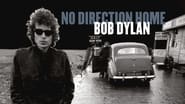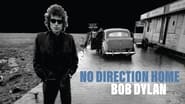BroadcastChic
Excellent, a Must See
Ceticultsot
Beautiful, moving film.
Livestonth
I am only giving this movie a 1 for the great cast, though I can't imagine what any of them were thinking. This movie was horrible
Brenda
The plot isn't so bad, but the pace of storytelling is too slow which makes people bored. Certain moments are so obvious and unnecessary for the main plot. I would've fast-forwarded those moments if it was an online streaming. The ending looks like implying a sequel, not sure if this movie will get one
classicsoncall
I guess you could say I was there from the beginning; the generation Dylan supposedly 'spoke' for was mine, having grown up in the Sixties and Seventies smack in the middle of the Kennedy assassination, Viet Nam and man on the moon. Generally I like Dylan's music though I wouldn't necessarily call myself a fan. A good friend of mine can't stand him for his often whiny voice and unintelligible lyrics. I had captioning on while watching this documentary and for the first time since the song came out, I now know what he was saying in the opening lines of 'Like a Rollin' Stone'.The Bob Dylan of "No Direction Home" comes across as exceedingly complex and unassumingly simple at the same time. He's unable (or unwilling) to verbalize a coherent answer when questioned by interviewers and fans, although I did find it annoying when a confrontational fan at a press conference challenged him to provide the deeper meaning of a t-shirt he wore on an album cover. Another fan insisted on letting him know that his songs were 'supposed to' have a subtle message. Dylan's response to this kind of nonsense was noncommittal at best but you could tell he had enough of it.Which leads to the larger point of those who clamored for his presence at protest gatherings against the war and any myriad of other social issues. Dylan was just not into it. Spokesman for a generation - b.s. was his reaction. Which totally disappointed fellow folk singer Joan Baez who wanted urgently to do political stuff while Dylan wanted to do songs. If you were around at the time and didn't know any better, like myself, you would have believed that Dylan certainly was this voice of a new generation.The film is peppered with the insight and musings of many fellow travelers of the folk music world during Dylan's early career - Baez, Dave van Ronk, Maria Muldaur, Al Kooper and Mike Bloomfield among others. But the most hilarious when he wasn't trying to be, was beat poet Allen Ginsberg attempting to describe how Dylan became a column of air and was one with his own breath. One gets the impression that if Dylan had heard that description of himself, he'd tell the guy he was full of hot air himself.Or then again, he'd say something like this - "Words have their own meaning, or they have different meanings and words change their meaning. Words that meant something ten years ago don't mean that now. They mean something else." That's Dylan speaking to Scorsese. If you had the time you might figure it out. Or you could listen to a Dylan album.
Wendy Darling
It's a Saturday night and I just finished watching Part 1 of this and OMG, it is AMAZING. Above all the best part is hearing Dylan explain -himself- rather than someone else explaining -him-. On top of that, he is straightforward, not seeming to play mind games or be elusive. There are plenty of other great people brought in too, everyone from Allen Ginsberg to Joan Baez to Pete Seeger to Liam Clancy to Mitch Miller. And on top of THAT, there are musical performances brought in throughout, not just Dylan but people - country, folk, blues, rock - from the 50s and 60s who influenced him and the times. Overall the movie does a great job of taking you back to a particular time in history, so it's not just abut one person but the times. In this way it's quite a lot like The Nomi Song, one of my all-time favorite movies and another great, great music documentary - about the late 70s / early 80s in the underground NYC punk/experimental scene. Anyway, just great and I'll be speeding the Netflix envelope back on Monday morning so I can see Part 2 as soon as possible.
Michael_Elliott
No Direction Home: Bob Dylan (2005) **** (out of 4) Being a die-hard Dylan and Scorsese fan meant I was really looking forward to this documentary and for sometime I was a bit worried that hype would kill the thing for me but it clearly didn't. Dylan's story is something that anyone could eat up and Scorsese pulls out all the stops in somewhat trying to explain Dylan. While Dylan doesn't pour his soul out here I think Scorsese, with his great talent of using music, helps make it clear all the stuff that was going through Dylan at the time as well as what was going through the country. The way Scorsese used "A Hard Rains A-Gonna Fall" and connection it to the JFK assassination is quite remarkable and even non-fans could feel the power of the song and it's lyrics. Scorsese does a brilliant job of telling the story and the majority of the documentary takes a look at Dylan's early days. Then, kinda like the downfall of Henry Hill in Goodfellas, Scorsese cuts to the final scenes and uses fast editing to show how quickly Dylan tired down. The infamous European tour of 1966 has had hundreds of books written about it and it's fascinating that Scorsese doesn't use any narration but instead just uses news clips and old interviews to tell the story. We can just look at Dylan and see that the end is nearing.Scorsese has easily created one of the greatest documentaries out there that might appeal to non-Dylan fans more than the die hards. When people ask me who Dylan is and what he did I never really know where to start but this documentary is a good place to show how he changed music while trying to change the country. As a die-hard fan the documentary also gives all sorts of never before released concert footage, which is a huge bonus. The infamous "Judas"/"Play It F*cking Loud" footage is like a holy grail to Dylan fans and it's here complete. There's plenty of other music of the times with Joan Baez and Johnny Cash as well. Scorsese really nailed down the Dylan aspect but it's also nice seeing him capture the mood of the Civil Rights and other issues that were all going on at the same time. To music buffs and Dylan fans this is a very important document but it's also very important to American history.
illuminated16
As odd as this may sound, I first saw this movie in a class I'm taking in college called Bob Dylan: The Man and His Music. It was the first time the class was ever offered--at least where I go to school. I had been unfamiliar with Dylan up until this point, other than hearing his name now and then. Now that I'm taking the class, I have so much more knowledge, appreciation, and respect for who he is and what he does. "No Direction Home" is a major contributor to this class, and while we only watched clips every now and then, we saw a good portion of the entire film. It's possibly one of the (if not THE) greatest documentaries of all time. Scorsese does an incredible job at getting into Dylan's head to show us exactly what he has experienced throughout his extensive career. The interviews with his colleagues along with the combination of concert footage, and a present-day interview with Bob himself makes this an amazing film. We see his evolution from folk to rock and roll, and all the trials and tribulations along the way. ****SPOILERS FOLLOW*** As with any movie, I had my favorite parts. His 1965 interviews were absolutely hilarious. He has such a wit about him that makes you kind of think, 'wow, what a bastard', but then you say, 'wow, what a genius' at the same time. It's kind of hard to explain if you haven't seen it. Also, I believe it's the last performance on the film, where he plays "Like A Rolling Stone" and fans are booing him--one goes so far as to yell out "Judas!" His reaction is incredible. "I don't believe you." "You're liars!" And then he turns to his band and says the greatest thing he could have possibly said at that moment: "Play it f---ing loud!" Genius. Pure genius.





